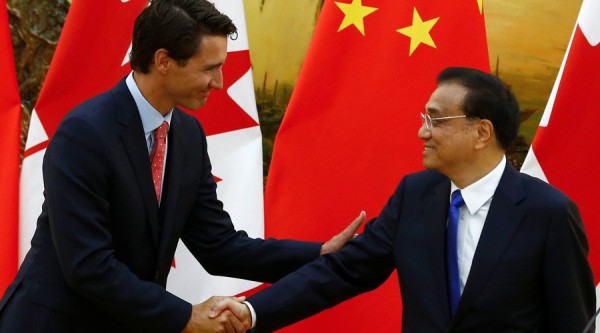Canada has agreed to ease its foreign investment restrictions in an effort to further enhance its economic ties with China, a senior legislator revealed.
According to David Lametti, parliamentary secretary to International Trade Minister Chrystia Freeland, the government of Prime Minister Justin Trudeau has been considering for some time, Reuters reported. Lametti added that, while the government has not yet formally looked into the idea of changing the regulations on foreign investment, it has expressed openness in exploring such proposals.
The current restrictions imposed on foreign investments came as a result of the move made by the government of Trudeau's predecessor Stephen Harper to control takeover bids made by foreign state-owned companies on Canadian energy firms.
In 2012, China National Offshore Oil Corporation placed a bid for Calgary-based oil and gas company Nexen. While the acquisition was approved by the Canadian government, there were concerns that the country's oil reserves could end up in foreign control, prompting the Harper administration to put in tighter restrictions.
China is the country's second biggest trade partner and has recently become one of its biggest investors.
Meanwhile, Canada also expressed its intent to join the China-led Asian Infrastructure Investment Bank (AIIB), the New York Times reported. According to Canadian officials, the decision to join came during Trudeau's five-day visit China on Aug. 30.
Canada has earlier expressed hesitations in joining the new bank saying that it wants to first ensure that the institution's financial and environmental standers meet its own. The concerns mirror that made by the United States, which has advised its allies, like Australia and South Korea, not to join. The two countries nevertheless accepted the invitation to become founding members.
China established the AIIB last year ostensibly to help fund infrastructure projects in Asia as an alternative to the World Bank. However, many experts also consider it as a showing of the country's growing economic and political influence.


